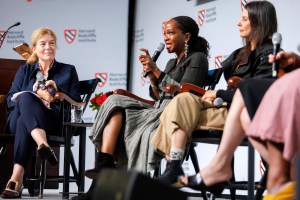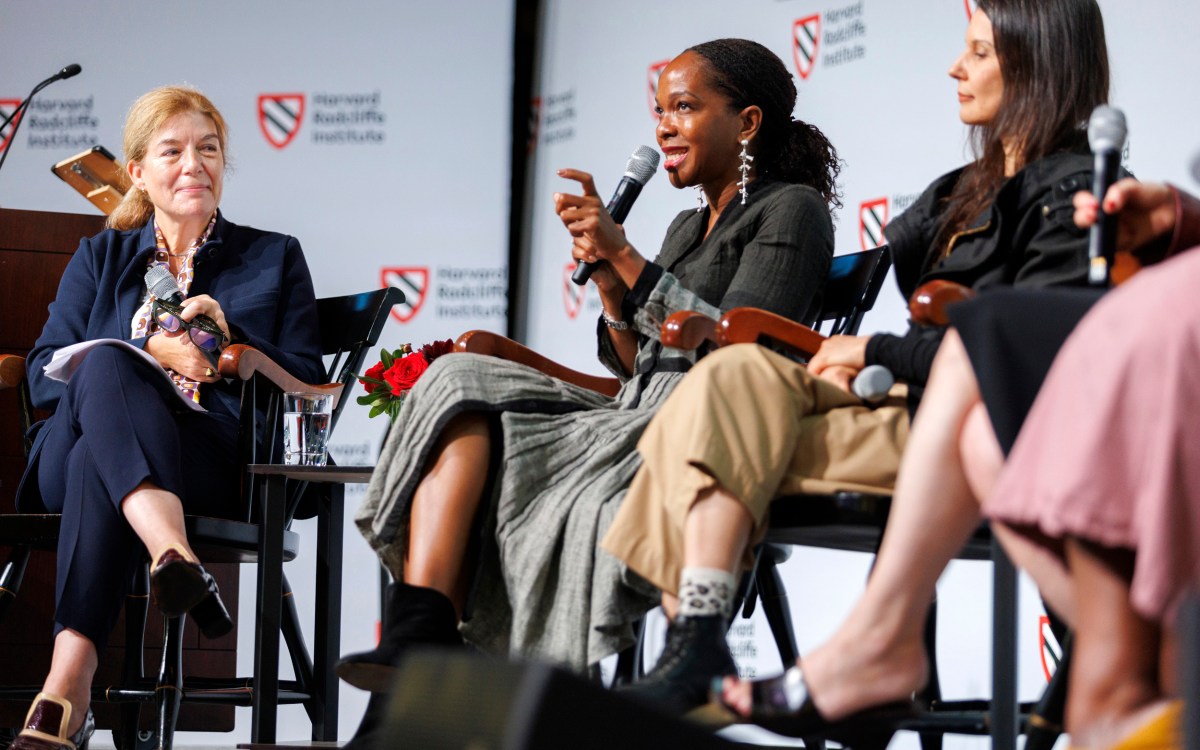A tale of two presidents
Doris Kearns Goodwin delivers lecture on Lincoln and Roosevelt
If you had walked into the Adams House dining room on Saturday afternoon (Feb. 28), you might have thought you’d stumbled upon a Harvard Business School management lecture on good leadership qualities. You would have been mistaken. The speaker was Pulitzer Prize-winning author and presidential historian Doris Kearns Goodwin, and she was discussing the management skills of two of her favorite subjects, Abraham Lincoln and Franklin D. Roosevelt.
As the invited speaker to the Annual Franklin Delano Roosevelt Memorial Lecture Goodwin spoke for more than 40 minutes to a capacity crowd of around 200. In the wood-paneled room just below the suite where Roosevelt had once lived (and which proceeds from Goodwin’s talk will help to renovate), the celebrated biographer talked about some characteristics shared by the two American presidents.
“Looking at these leaders together gives us a sense of what it required to be a great leader in a time of crisis, something we need to think about in today’s world,” said Goodwin.
Based on their early lives, Lincoln and Roosevelt would not seem to have much in common. Lincoln was born into a poor family of farmers in rural Kentucky and received only one year of formal education. Roosevelt was born into wealth and privilege, attending an elite boarding school and then Harvard University.
Yet, despite their very different beginnings, Goodwin explained how both men overcame personal difficulties — Lincoln’s depression and Roosevelt’s polio — and suggested that facing these challenges contributed to their success as leaders.
Another trait that the two had in common was their willingness to surround themselves with political rivals, not coincidentally the focus of Goodwin’s most recent book, “Team of Rivals: The Political Genius of Abraham Lincoln” (Simon and Schuster, 2006).
Other characteristics the men had in common included a willingness to share credit for success, and the ability to accept responsibility for mistakes and learn from them.
“It’s not our mistakes that hurt us the most, but usually our response to those mistakes,” said Goodwin.
She rounded out her list of attributes with some of the 16th and 32nd presidents’ lesser-known skills: the ability to control their emotions as well as a healthy respect for the importance of knowing how to relax.
While Lincoln’s reputation portrays him as a serious and often morose leader, he was equally well known in his time as a humorist and storyteller.
“His greatest form of relaxation was his extraordinary sense of humor,” said Goodwin. “He could entertain a crowd for four hours with one winding tale after another.”
FDR’s recreational activities included stamp collecting and playing poker, although his most cherished was the daily White House cocktail hour, which had only one rule: “no talk of the war.”
According to Goodwin, FDR loved cocktail hour so much he eventually invited his regular guests to live at the White House so they would always be on time for evening drinks.
“The White House became the most exclusive ‘presidential hotel’ you could possibly imagine,” said Goodwin. “Winston Churchill would come and spend weeks at a time in a room across the hall from Roosevelt.”



